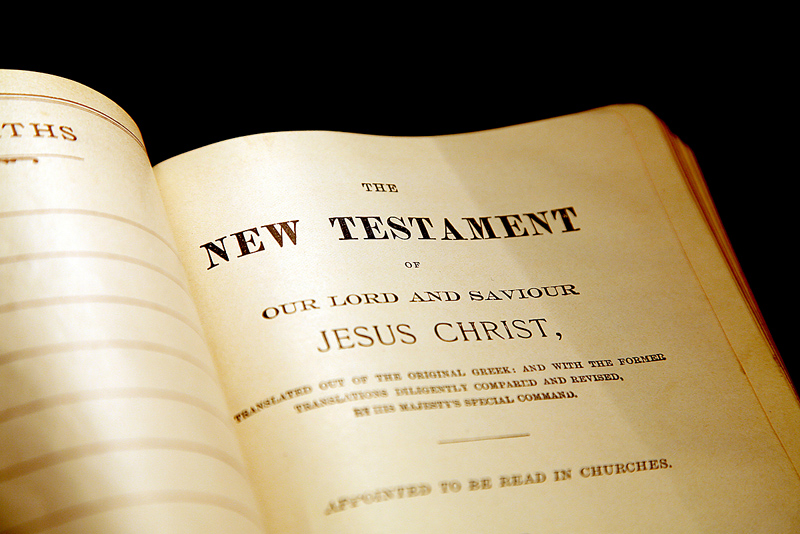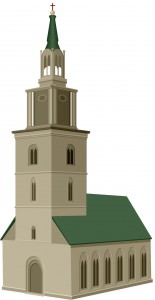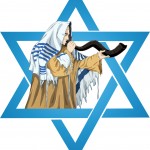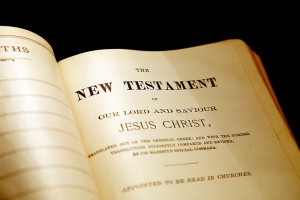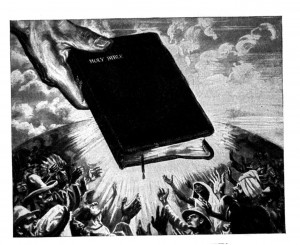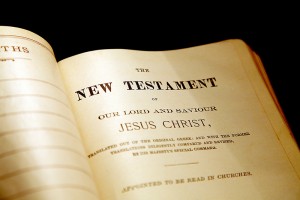The Torah in the Testimony of Yeshua (New Testament)
Though the primary theme of the Testimony of Yeshua (the name John gives to the New Testament in the Book of Revelation—e.g. Rev 1:2; 6:9; 12:17; 20:4) is the testimony of Yeshua the Messiah, the Torah is, nevertheless, the elephant in the room.
Though not mentioned outrightly as often as one would think in the Testimony of Yeshua, the Torah is implied, assumed, or referred to in on countless occasions using coded Hebraisms. Why, one might ask, is this the case with the apostolic writers? The answer is simple: They were writing to Jews as well as to non-Jewish people who either already operated within a Torah-centric religious paradigm or were being brought into it. The obvious didn’t have to be mentioned over and over again, for Torah was not a strange or foreign thing to the first century believers as it is to most in the church today. The Torah was their way of life and frame of reference for all that they thought and did!

The word law as used in the Testimony of Yeshua is the first aspect of this “elephant” we need to examine. It is the Greek word nomos which in the Septuagint (the third century B.C. Greek translation of the Tanakh [Old Testament Scriptures]) is used in place of the Hebrew word Torah. Therefore, we know that the Jewish scholars who translated the Tanakh into the Greek language considered the words Nomos and Torah to be equivalent. Also, contextually, in the Testimony of Yeshua, we can see that the word law means Torah. To the Messianic Jews who wrote the entire Testimony of Yeshua, when the Greek word nomos is used this is not a reference to Roman, Greek or Babylonian law, but to the biblical Hebrew law or the Torah, or Torah-law of Moses.
Let us not forget that the Bible was written, for the most part, if not totally, in the Hebrew (or Aramaic) language by Hebrew people who spoke Hebrew, lived in a Hebrew culture, practiced the Hebrew religion and worshipped and served YHVH Elohim, the God of the Hebrews. What defined the Israelites’ spiritual relationship to their God – YHVH Elohim? It was the Torah, which by definition and to the Hebrew mindset of the first-century referred specifically to the instructions in righteousness of Elohim as delivered through his servant and prophet Moses to his people, the children of Abraham, Isaac and Jacob (Israel), known as Israelites. As noted above, the Torah is recorded in what is commonly called the Books of the Law, the Books of Moses, the Pentateuch or the Chumash, or what we would call the first five books of the Hebrew Bible: Genesis, Exodus, Leviticus, Numbers and Deuteronomy. These books contain YHVH’s instructions in righteousness, which were delivered letter-for-letter and word-for-word from the very mouth of Elohim to Moses and the Hebrew children of Israel and forms the foundation for the entire Bible: both sections which Christians commonly call the Tanakh and the Testimony of Yeshua.
For the people of Israel in Yeshua’s day, including the apostles who, under the inspiration of the Ruach HaKodesh (the Spirit of Elohim), the Torah of Elohim, given through Elohim’s servant Moses, formed the central teaching document that regulated and governed every aspect of life, culture, family relationship, marriage, society, religion and relationship with surrounding nations. Therefore, law for them was Torah. Nothing more nor less.
Keep in mind that the concept of Torah, to the Hebrew mind, did not have the pejorative connotation that the term law has to the traditional Christian mindset which tends to read a legalistic bias into the word law when reading the Testimony of Yeshua.
Although Yeshua, the Living Torah, and not the Law of Moses or the Written Torah, is the main theme of the Testimony of Yeshua, it can’t be denied that the Written Torah is woven throughout the fabric of the Testimony of Yeshua. In fact, it would be negligent of me to pass over the pro-Torah themes and statements found throughout the apostolic writings.
Examples of References to the Torah in the Testimony of Yeshua
Continue reading →

